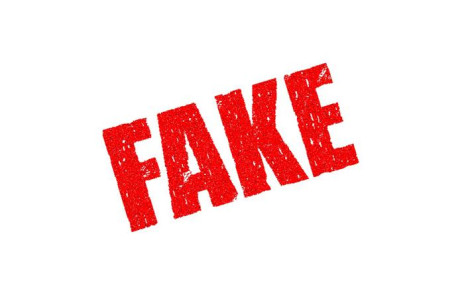This post has already been read 1961 times!
Fake news has grown in an astronomic proportion. This is a major challenge of our ever involving technological advancement. Technological advancement as we know gave rise to information overload and unhealthy competition for a desire to be top news breaker. Many care less about the source. Professional laziness is now in the increase within the fourth estate of the realm itself.
In an informal media group chat we participated in last week, an uninformed member raised the issue of President Muhammadu Buhari’s cloning. Those of us who knew better tried hard to convince this individual there was no truth in that. But he went on to produce links to ‘credible sources’ which according to him had done ‘extensive report’ on it. It was not hard to see the point. Those sources he shared were sources he had developed a soft spot for. We knew better that the sources are known for unverified news.
The fact is fake news and misinformation has no credibility outside the source. Where there is no wood, fire may not burn is a popular Nigerian adage. We must admit that adage needs some modification in this age of gas. This is a topic for another day.
News outlet, therefore, must necessarily do their due diligence before given credence to any form of information or news story. People’s thirst for information must not be marred with fake news. News outlets need to create a level of ethical responsibilities which can prevent the mainstreaming of fake news by premium credible sources with stronger influence on the society and news consumers.
In a recent report on fake news by Knight Foundation which has been supported by Becca Lewis, fakes news and misinformation do not gain notoriety and a level of believability until mainstream media gives it a subtle attention through bringing it up for discussion.
The point is we cannot totally blame mainstream media for this act as the aim may be to dissuade the news consumers’ community from accepting the news as true. But in a way, fake news and misinformation often gain popularity and credibility because of this singular act.
Another way fake news become part of the conversation is the source of the information. There are many online influencers today whose words are taken as final by their followers. These influencers can be misinformed but trusted friends, who have no time for fact-checking. But who are willing to ‘forward as received’. This kind of message is common within social media groups, WhatsApp groups seem to be gaining notoriety for this.
Coming back to the news story about President Buhari’s cloning cited above, our minister of information and the ruling party had helped in mainstreaming the news to the extent that the President himself had promoted the news at the international climate change meeting he is presently attending in Poland.
There has been another unverified story about Atiku Abubakar, People’s Democratic Party’s Presidential candidate, with regards to his visit to the United States of America. Many online news platforms carried the story Atiku had secured USA’ visa and had traveled to the USA immediately last week. Only to be told by one of his aides or can we say one of his purported aides that Atiku went to United Kingdom and not United States as being speculated.
The level of misinformation even from the so-called premium media outlets is becoming a source of concern to all. In all these, United Nations Educational, Scientific and Cultural organization(UNESCO) is on the frontline of promoting media and information literacy which not only help the society but more than anything empowers news consumers to gain a better appreciation of news sources and how to sieve weed from the crop.
UNESCO Media and information literacy policy framework application will benefit our society more in this age as it encourages increased democratic citizens’ participation with strong awareness of ethical responsibilities as a global citizen while encouraging diversity, plurality of dialogue with a high sense of responsibility.
Beyond these, we need to empower every news consumers with strong ability and will from spreading ‘shared as received’ messages or news story as they add no value to the society. In other words, we all have a part to play in fake news elimination in our society.



